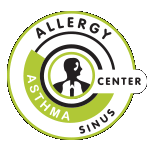Allergy Shots at Home
Safety First
Immunotherapy should be administered in a setting that permits the prompt recognition and management of adverse reactions. The preferred location for such administration is the prescribing physician’s office. However, patients can receive immunotherapy injections at another health care facility if the physician and staff at that location are trained and equipped to recognize and manage immunotherapy reactions, particularly anaphylaxis. – Allergen Immunotherapy: A Practice Parameter 3rd update - Joint Task Force on Practice Parameters, AAAAI and ACAAI
Allergy shots are the most effective therapy for treating nasal allergies and their attendant complications. My patients often call them life changing. Despite their effectiveness, many patients who would benefit from them choose not to utilize this therapy. The most common reason they choose not to do so is not money, since insurance coverage is generally very good, or fear of needles, since the injections are relatively painless. The biggest reason is time. Allergy shots must be administered in a medically supervised setting where the provider and staff are familiar with the shot process and have the means to diagnose and manage acute allergic reactions. This means coming to the doctor’s office to receive injections. Given the busy modern lifestyle, this can be a significant time commitment. So why does it have to be this way? The answer is safety.




